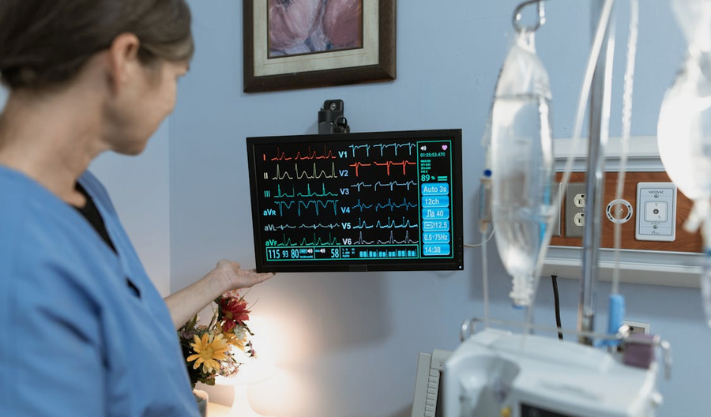Dr. Sofica Bistriceanu Interview
In this insightful interview with The UK Times, Dr. Sofica Bistriceanu—an accomplished medical doctor, researcher, and poet—shares her multifaceted perspectives on the crucial role of communication in patient care, the influence of global collaboration, the power of compassionate practice, and the intersection between science and the arts. With over 120 international research studies and seven volumes of poetry, Dr. Bistriceanu offers a unique voice that bridges clinical excellence and humanistic insight.
The Role of Communication
We started the interview by asking, “Your research emphasizes the role of communication in clinical outcomes. How do you see communication shaping patient care in today’s healthcare landscape?”
Sofica Bistriceanu replied, “Effective communication is essential for individual life paths. Skillful interactions with collaborators, partners, and clients, along with the provision of high-quality services at reasonable prices, ensure a successful product exchange, which is necessary for their existence, as no one can know and produce everything.
Interacting with our clients or patients, whether in person or virtually, in a friendly and honest manner, resonating with their suffering, and showing generosity when possible, has a profound positive impact on their feelings. Consequently, they are more likely to adhere to the proposed management of their disorders, leading to better clinical outcomes. Satisfied patients then share their positive experiences with friends, family members, and other loved ones, which enhances the provider’s reputation and ensures an increase in their return on investment, financial stability, business growth, career advancement, and overall well-being.”
Chronic Disease Management
The UK Times: You’ve presented on topics like “Improper communication leads to Type 2 Diabetes.” Could you elaborate on the connection between communication and chronic disease management?
Sofica Bistriceanu replied, “Evidence from clinical practice has shown that repetitive impolite interactions among individuals can lead to disorders in vulnerable people, including type 2 diabetes, depression, arterial hypertension, dyslipidemia, and even brain hemorrhages or tumors. Therefore, attentiveness and elegance in communicating with others, especially with seniors, are key for preventing and treating the illnesses mentioned above.
The dimensions of compassionate care vary in practice. Heartfelt offerings can provide a small light in the darkness of those who are suffering.”
The Drive behind Lifelong Research and Global Sharing
The UK Times: With over 120 research studies shared internationally, what drives your passion for continuous research and knowledge dissemination?
Sofica Bistriceanu replied, “Having advanced knowledge about human functioning, a physician can easily distinguish between the effects of individuals’ wrongdoings on themselves and others, compared with social norms, and their variation over time.
A variety of external factors influence us both positively and negatively, depending on their timing, magnitude, personal construction, and selection.
Promoting good feelings among others fosters a peaceful inner life, which is essential for a better existence.
The new trend of attending international conferences in a hybrid model, where we engage with diverse professionals in the global healthcare industry, enhances personal knowledge, improves our effectiveness, and enables us to reflect on the varying impacts of applying data in practice worldwide.”
The Value of Global Medical Collaboration
The UK Times: As a member of various international medical organizations, how has global collaboration influenced your approach to healthcare?
Sofica Bistriceanu replied, “Global collaboration has broadened my perspectives. I have observed diverse healthcare systems, challenges, and solutions. Engaging with international peers through organizations in Europe, America, and Asia has enriched my understanding and inspired innovative approaches to patient care. It emphasizes the importance of cultural competence and adaptability in delivering adequate healthcare to diverse populations.
The Intersection of Literature and Medicine
The UK Times: You’ve authored seven volumes of poetry. How does your engagement with literature influence your medical practice?
Sofica Bistriceanu replied, “To write poems means to be created for that: to make music of words when you want to share an idea, subtly invite the readers to reflect on that topic, and eventually contribute to extending its meaning in their words and intuitive images.
Some of the poems I wrote were inspired by my medical practice, which allowed me to observe a wide range of emotions in diverse circumstances. Other poems reflect the nature that always fascinates us, and the harmony of its colors vibrates with our inner world. Seasons are like an individual progressing through winter. All life forms share a distinct characteristic that is sometimes observed in humans. While humans have the privilege of achieving dominance, God’s supremacy remains eternal. God is perfect in all aspects. Human imperfection is a common trait.
Voice as a Tool in Clinical Communication
The UK Times: In your 2023 presentation, you discussed “Perspective for voice utilization in clinical practice.” Can you share insights on this topic?
Sofica Bistriceanu replied, “Communication between people can be both verbal and nonverbal. Words, whether spoken or written, serve as the primary channels of communication. Their meanings significantly influence human functioning. Spoken words gain value through voice characteristics such as tone, volume, pitch, and inflection, which convey emotions alongside the functionality of three essential systems for life: the nervous system, the respiratory system, and the circulatory system. A conversation provides a well-rounded profile of its participants, including their health, knowledge, and perspective. Face, hands, and voice can be predictive of clinical diagnoses.
Advice for Emerging Healthcare Professionals
Lastly we asked, “What advice would you give to emerging healthcare professionals aiming to integrate research, clinical practice, and the arts?”
“Medicine is an art. Family medicine benefits physicians by providing longitudinal data about individuals. In some families, I have observed three to four generations in evolution. Home care offers more valuable data for analysis. Individual lifestyle, environment, social connections, and financial capacity, including access to IT advancements, influence their health and life trajectory.
Collaborating with experts from other medical fields is essential, as each has limitations in understanding human functioning. Together, we can enhance people’s lives, advance through another life form with dignity, and go away in peace, leaving behind the best memories over time. Sofica Bistriceanu concluded
Connect with Sofica Bistriceanu on LinkedIn
Also Read:
Dina El Dalil, Expert in Banking & International Business
Dr. Sari Abwa: Passion Drives Aconvest’s Green Innovation
Prof. Maurizio Bragagni on Lighting the Path























